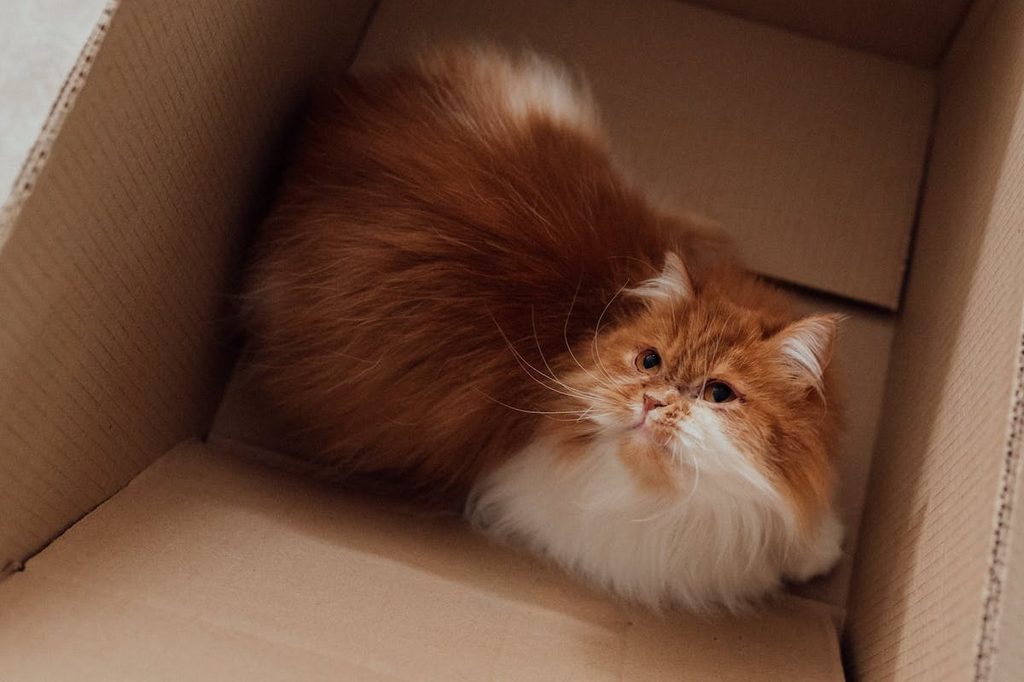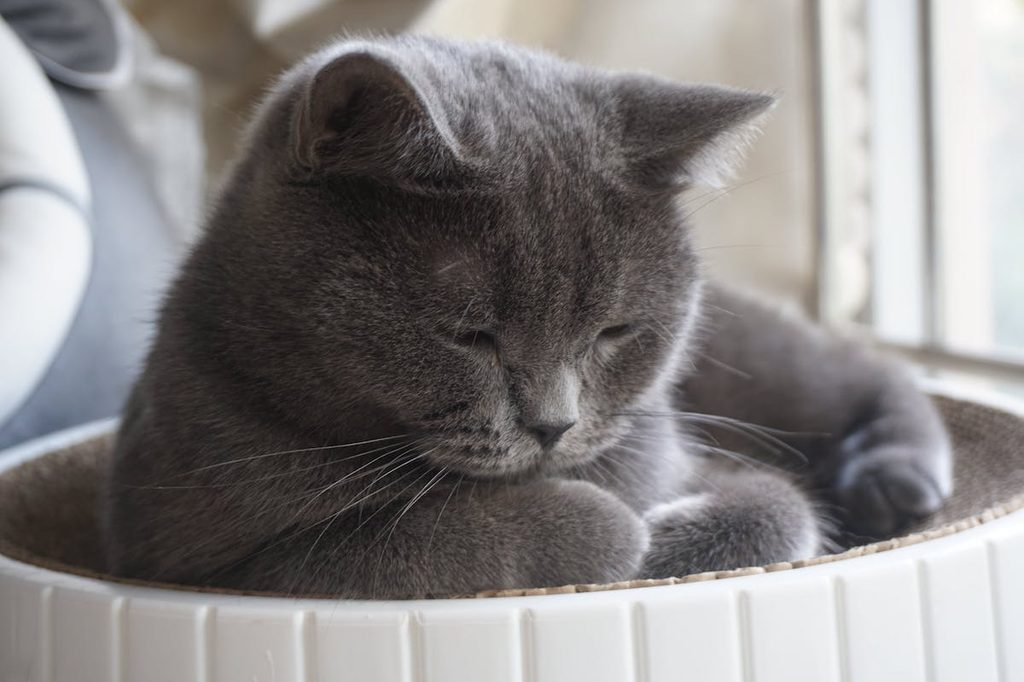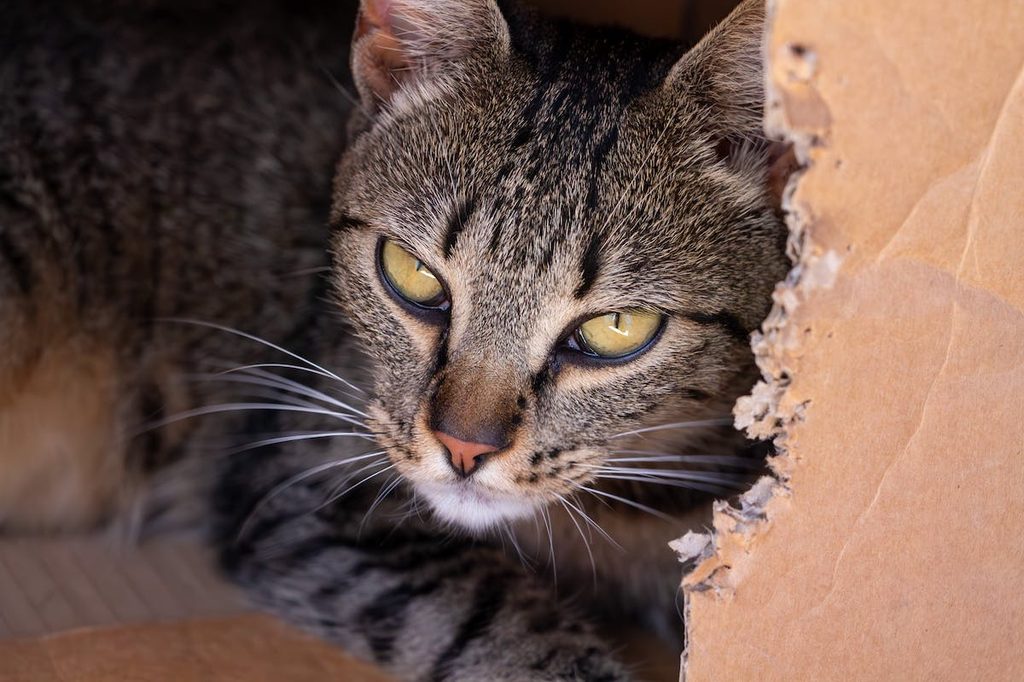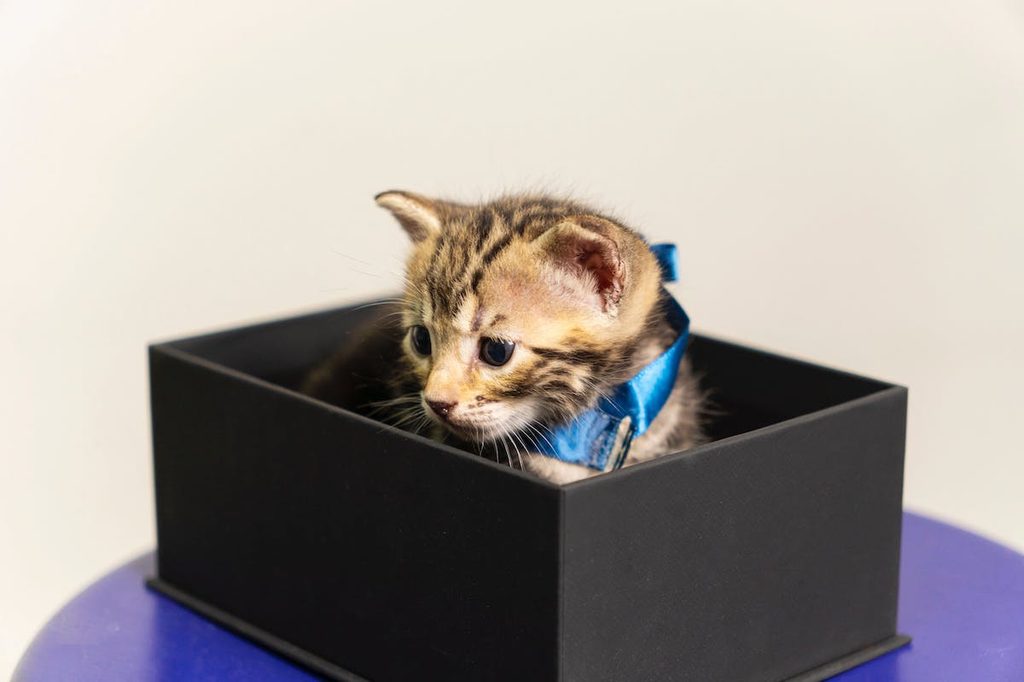
Cats can be a curious bunch. They attack the holiday tree annually and stare at you until you start questioning what’s happening in their heads. The hijinks may leave you thinking, “Cats, can’t live with ’em, can’t live without ’em.”
If you have chosen to shack up with a cat (or keep an indoor-outdoor or solely outdoor kitty), you know you signed up to deal with some potty scooping up. For indoor cats, this means cleaning a litter box. The good news? Cats are pretty reliable about going in the box once trained and not around your home. Why do cats spray, though? You may ask this question if you notice small amounts of urine around your pad. You’ll want to get to the root cause (and determine if a cat is spraying in the first place) so you can fix the issue and save your sofa and carpet.

Is cat spraying the same as peeing?
Cat spraying is a form of urinating. A cat will leave small traces of urine. However, cat spraying is distinct from a full-on urination outside of a litter box by a cat that generally uses one like clockwork. Felines spray on vertical surfaces, like walls (hooray if it’s white) and furniture. Another key with spraying is that the amount of pee is smaller than a cat usually produces when eliminating.
When a cat is urinating large amounts outside of the litter box, it’s more likely they’re experiencing a medical condition like a urinary tract infection. Cat spraying generally has different causes (though some of the triggers for spraying and completely eliminating outside of a box can overlap).

Why do cats spray?
If you start noticing spraying, you may get stressed, wondering if something is wrong with your cat, like a medical issue. Moreover, let’s be honest: You don’t want a cat’s pee on your furniture and walls — it smells, it’s unsightly, and you like your sofa. Here’s what to know about the common culprits behind cat spraying.
Communication between cats about territory
Cats speak “pee,” so to speak. Spraying is a form of communication cats use to send messages to one another, mostly about territory. Cats are big on boundaries. Unlike pack-creature dogs, kittles are “lone wolves,” and they crave spaces all their own. If multiple cats are in a home (or you just introduced a new one), a cat might begin spraying to mark favorite areas, like the couch near their tree. They may even mark their tree if it’s vertical.
Outdoor cats may do the same spraying around areas they love in nature. Additionally, indoor cats may leave small traces of urine around the house if outdoor kitties keep invading your yard. The cat may become alarmed by these intruders, and spraying may be one way they try to mitigate this stress.
Stress
Your cat may also be communicating with you via spraying. Notably, they might be stressed about something. Was it something you did? Maybe. Cats may begin to spray if they’re anxious about something. We already covered other cats, but your kitty might be upset about something else if that life change didn’t happen. Did you start a new work schedule that affected feeding times? Perhaps you moved to a new apartment. You meant no harm, but your cat may be spraying as a way to cope with the stress.
Mating
Cats of either sex can spray, but the behavior is more common among unneutred males. (Neutered males may also continue to spray, though, especially if the procedure was done later in life.) Cats also communicate with one another via spraying when they’re searching for a mate.

How to stop your cat from spraying
One tactic not to take is yelling and punishment. This strategy will only scare a cat and exacerbate any stress. Here’s what you should do should you notice your cat is spraying.
- Call a vet. If your cat starts spraying out of nowhere, your first call should be to the vet to ensure there aren’t any underlying medical conditions.
- Consider neutering. Since mating is a reason cats spray, make the act unproductive by neutering your pet.
- Make it more challenging to see strays. Try to block or minimize a cat’s access to windows where they can see strays saunter onto your property. Consider blocking a window, closing blinds, or moving a cat’s perch elsewhere.
- Solve issues between cats. Ensure each cat in your home has their own litter box, “safe spaces” like elevated areas to retreat to, and a feeding area. These steps can mitigate a desire to protect turf.
- Minimize stress. Reduce other stressors by trying to keep a cat on a schedule. Speak a kitty’s love language by showing affection in a way they like. Some cats may love cuddles, others crave play, and others may want to be left alone. Respect your kitty’s wishes.
Summary
Why do cats spray? Many reasons. Cats may spray (release small bits of urine on vertical surfaces) because of stress, the desire to mark territory, or mating. Spraying is different from completely peeing outside a litter box — the amount of urine released during spraying is less and almost always on vertical surfaces. Refrain from scolding a cat for spraying. Instead, speak to a vet to rule out any medical issues. Reducing a cat’s stress, neutering, and solving problems between your pet and other felines, such as deterring the cat from seeing any strays coming onto your property, can help a pet stop spraying.




